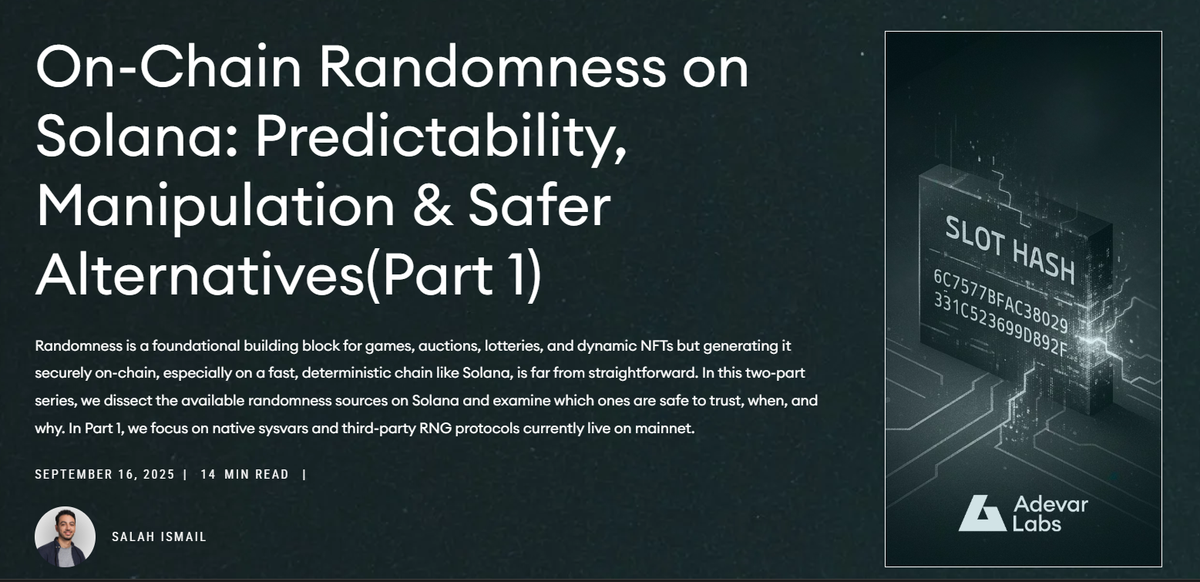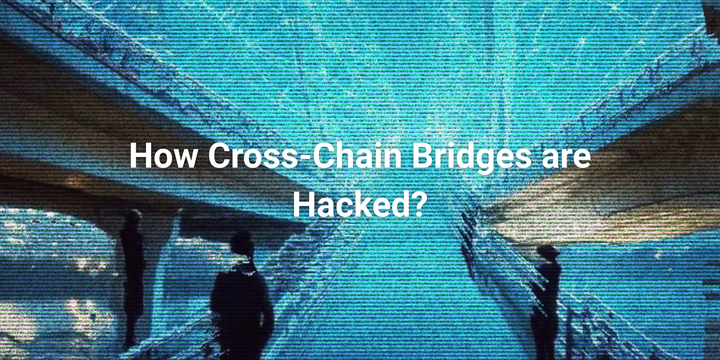On-Chain Randomness on Solana: Why Native Methods Are Predictable & Safer Alternatives (Part 1)

Source: On-Chain Randomness on Solana: Predictability, Manipulation & Safer Alternatives (Part 1)
Randomness is essential for applications like games, auctions, lotteries, and dynamic NFTs, but generating secure, unpredictable randomness on Solana-a fast, deterministic blockchain-is notoriously difficult. This article breaks down the native randomness sources on Solana and reviews live randomness services currently available on mainnet.
Why On-Chain Randomness Is Hard on Solana
Solana validators must produce identical results to maintain consensus, so programs can’t access local, unpredictable data sources. This strict determinism limits entropy sources, making reliable randomness generation a notable challenge.
Native Sources: Sysvars
- SlotHashes Sysvar: Stores 32-byte hashes from Solana’s Proof-of-History per each ledger slot (up to 150 entries). Programs can read recent hashes to try and extract randomness. However, these hashes are fully deterministic and can be manipulated by validators through transaction choices, ordering, or metadata tweaks.
- Clock Sysvar: Provides the current slot number and Unix timestamp. Some projects, like Metaplex’s Candy Machine v2, combine timestamps with slot hashes for random seeds. But again, these values are predictable and influenceable by validators.
Security Concerns With Native Approaches
Reliance on blockhashes or slot hashes for randomness is insecure because block leaders (validators) can:
- Withhold blocks until a favorable hash appears
- Introduce specific transactions to bias the hash
- Use Miner Extractable Value (MEV) techniques to exploit predictability
Even advanced methods like applying a Verifiable Delay Function (VDF) over blockhashes don’t eliminate these risks completely, as attackers can precompute outcomes and selectively submit transactions.
Bottom line: Native Solana randomness sources are predictable and manipulable and should never be used alone for security- or value-critical applications.
Live RNG-as-a-Service Protocols on Solana
Several oracles provide verifiable, trustworthy randomness as on-chain services, combining on-chain programs with off-chain components. Notable options include:
- Switchboard VRF (v2): A Verifiable Random Function oracle network. Developers submit a request; off-chain oracles generate a random proof and post it on-chain. Widely used but now succeeded by v3.
- Switchboard Randomness Service (SRS, v3): Optimized for single-transaction calls. Oracles produce randomness inside secure enclaves, instantly invoking a callback with random data in the same transaction. Requires funding an escrow to pay operators.
- ORAO VRF: A multi-node VRF oracle providing random outputs with cryptographic proof. Offers sub-second response times with a “Byzantine Quorum” security model. Fees include 0.001 SOL plus account rent.
- Pyth Entropy: Uses a committed hash-chain from off-chain providers mixed with the current blockhash. Currently, Pyth Entropy is only live on EVM chains but may expand.
What’s Next?
In Part 2 of this series, the RNG services’ trade-offs between verifiability, latency, trust, and complexity will be analyzed. Expect practical guidance to help you choose secure randomness solutions for your projects.


